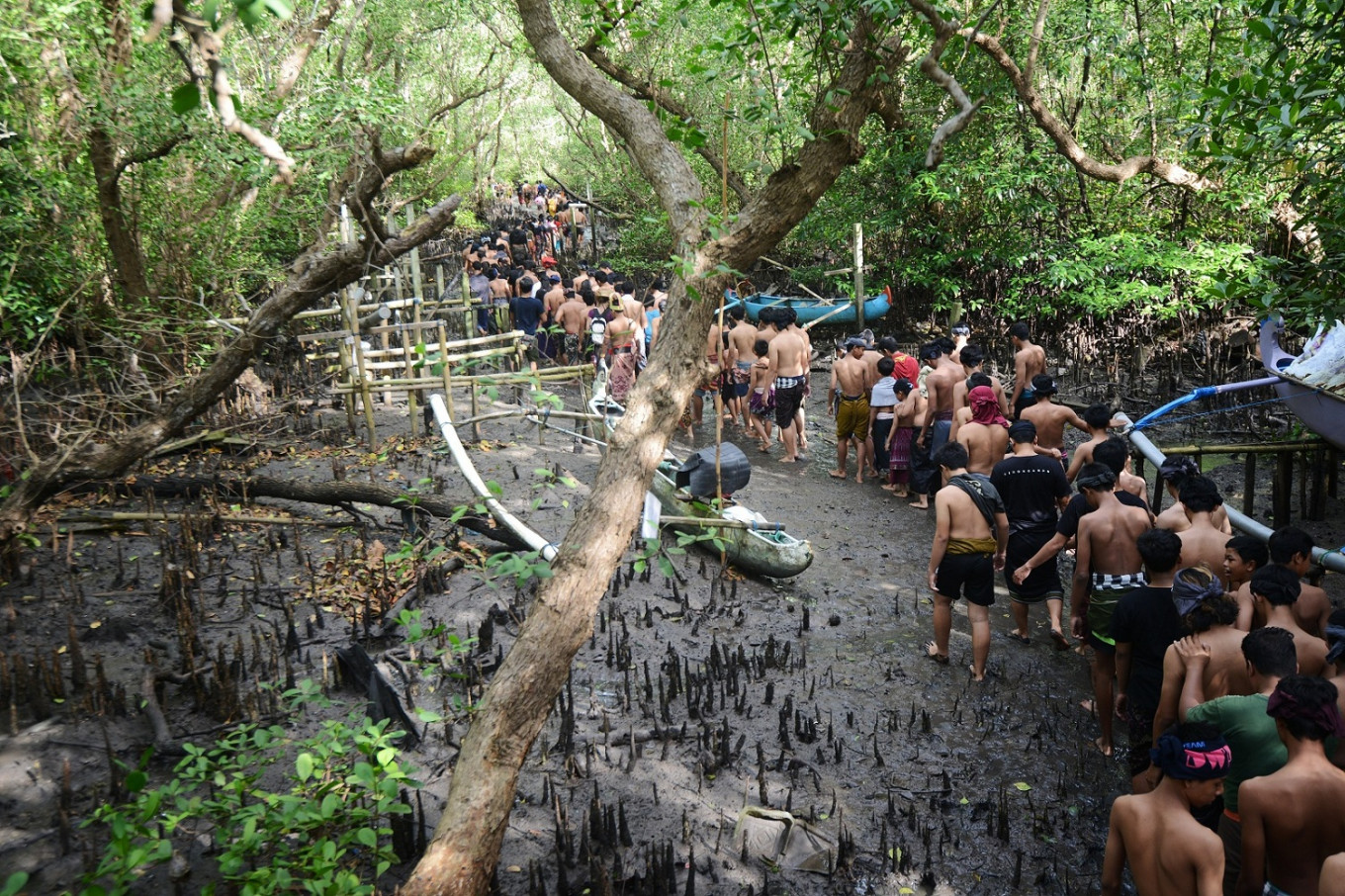Popular Reads
Top Results
Can't find what you're looking for?
View all search resultsPopular Reads
Top Results
Can't find what you're looking for?
View all search resultsTraditional Balinese mud bath draws the crowds
Change text size
Gift Premium Articles
to Anyone
 Balinese people walk between manggrove to put mud on their body during a traditional mud bath known as Mebuug-buugan, in Kedonganan village, near Denpasar on Indonesia's resort island of Bali on March 8, 2019. The Mebuug-buugan is held a day after Nyepi aimed at neutralizing bad traits. (AFP/Sonny Tumbelaka)
Balinese people walk between manggrove to put mud on their body during a traditional mud bath known as Mebuug-buugan, in Kedonganan village, near Denpasar on Indonesia's resort island of Bali on March 8, 2019. The Mebuug-buugan is held a day after Nyepi aimed at neutralizing bad traits. (AFP/Sonny Tumbelaka)
A
day after Indonesia's holiday island of Bali fell quiet for the annual "Day of Silence" festival, hundreds joined a mud bath purification ritual which has been recently revived after a sixty-year hiatus.
The mud bath, known locally as Mebuug-buugan, is believed to purify and remove bad luck and negative energy.
Men, women and children, wearing sarongs and traditional head gear, collected lumps of mud from a mangrove forest in Kedonganan village, just outside the town of Denpasar on Friday, and smeared themselves as part of the purification ritual.
It comes a day after Nyepi, a Balinese festival where Hindus -- plus non-Hindus and tourists on the island -- are expected to stay home and self-reflect, while flights, lights and the internet are all stopped.
In the past, participants were naked during the mud festivities, but in the mid-twentieth century locals grew more uncomfortable with public nudity.
The festivities were halted for six decades, until being revived three years ago -- on the understanding that the concept of the ritual would change so participants were allowed to wear clothes.
Villagers of all ages smeared mud on anyone in the vicinity, after praying for safety and good fortunes.
Read also: Why we need to eat seafood and take a nap in Bali
After the mud bath ritual they headed to the nearest beach together to rinse the dirt and ward off evil spirits.
The ritual has been popular since its return, and dozens of tourists watched on the sidelines and snapped pictures to capture the moments which once disappeared for decades.
On Wednesday, a day before Nyepi, the island held its annual ritual to ward off demons and evil spirits.
In the parade, colourful effigies known as Ogoh-Ogoh were paraded through the streets before being burned, representing renewal and purification.
Indonesia is a Muslim-majority country but more than 80 percent of Bali's population identify as Hindu and practice a local version of the religion.










